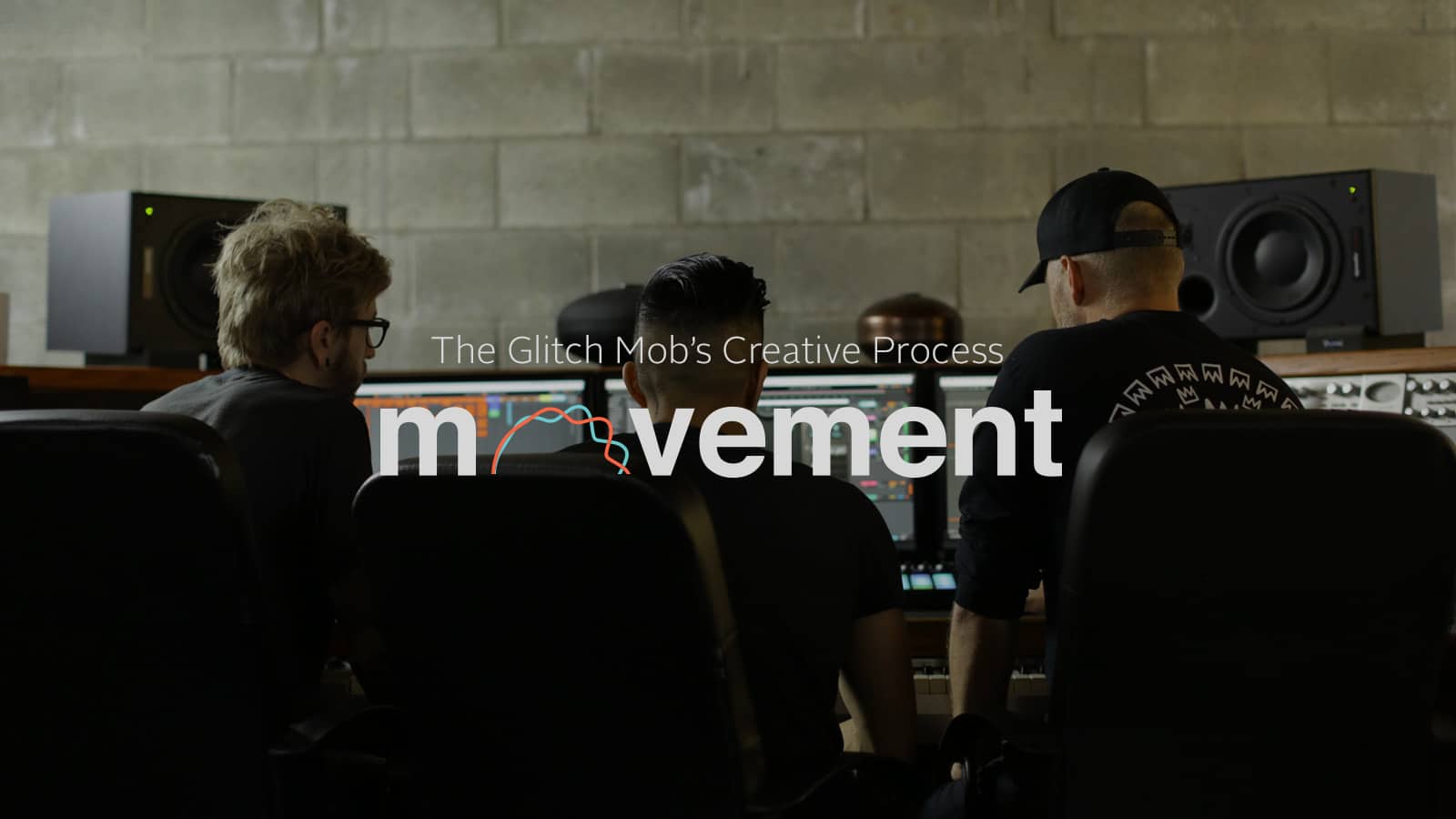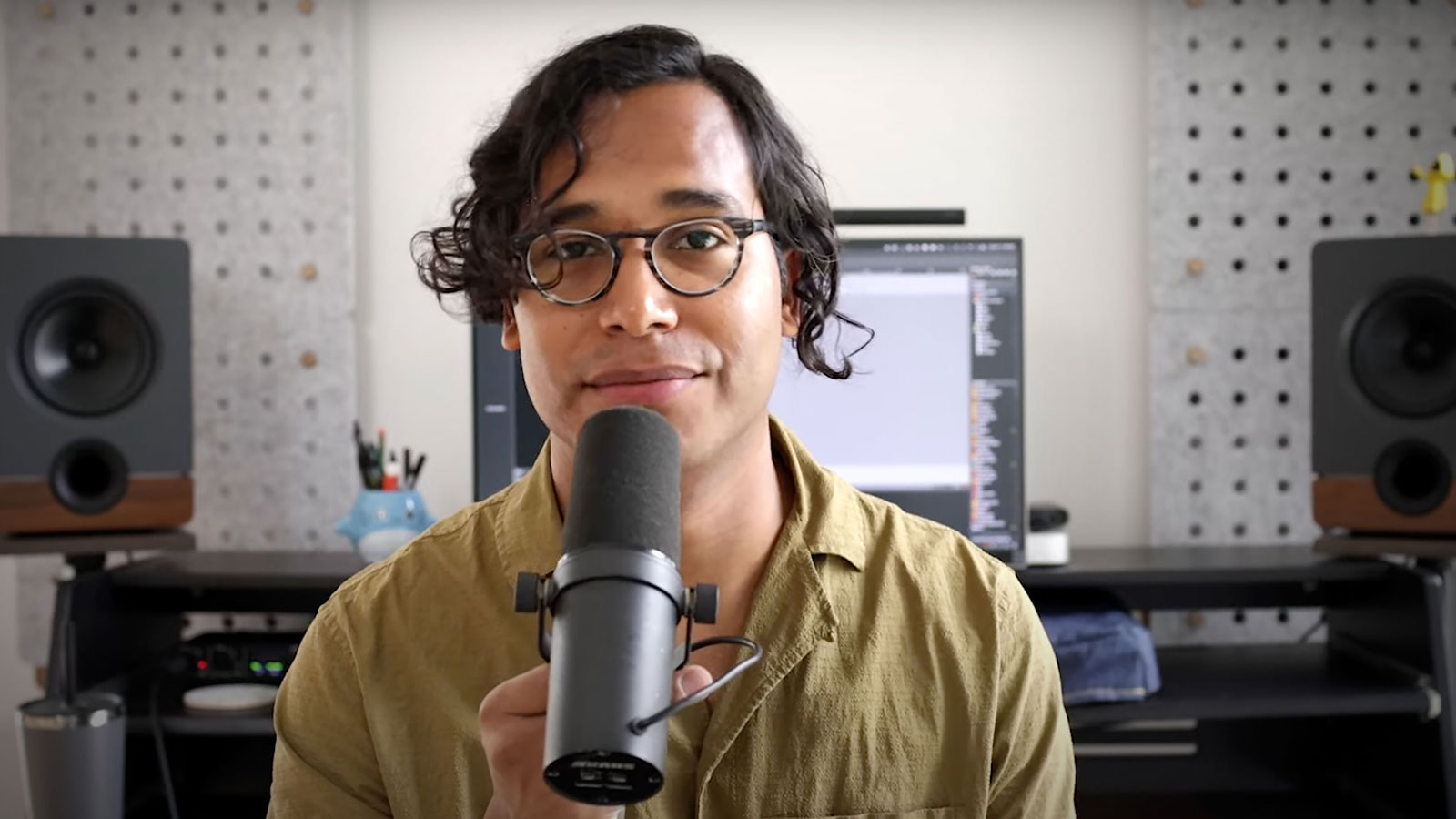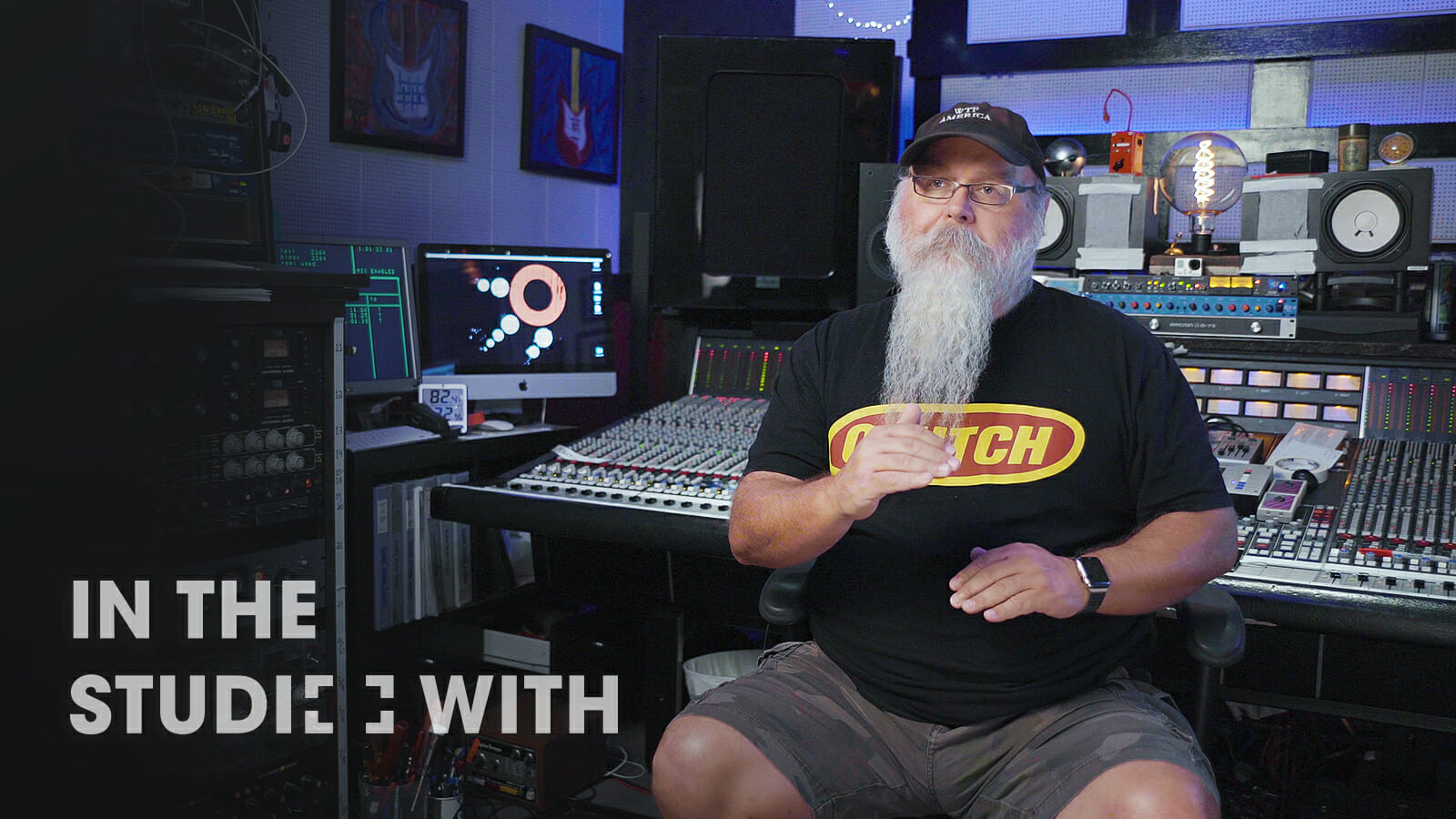Ooah, Boreta, and ediT are the electronic dance musicians collectively known as The Glitch Mob. And they are no strangers to the sounds that emerge from Output’s products.
Not long ago, the Los Angeles-based trio shared how they use MOVEMENT to transmogrify their tracks. Today they show us how EXHALE, REV, and SIGNAL are also a part of the mix. But don’t make the mistake of trying to define their style by the plugins they utilize.
“For us, there’s tons of experimenting… we let each song go where it wants to go,” says Josh Mayer, AKA Ooah. “We never really set out to be like, all right, let’s make a dubstep song or an electro song.”
Edward Ma, who goes by edIT, heartily agrees. “Yeah. We never start in terms of genres. It always starts from a feeling.”
But first, a sketch
Justin Boreta explains that they start off with a blank slate and then create sketches.
“We strip everything down and we have a set palette of a couple of instruments. We use a couple of different effects,” the Goleta native says.
“Pretty much every sketch that we’ve made thus far has used REV, SIGNAL, and EXHALE,” edIT adds. “At least one of them, if not some combination of all three.”
Boreta, who was recently nominated in 2021 for a Best New Age Album Grammy for his side project Superposition (with Matthew Davis), explains The Glitch Mob’s technical process.
“We write everything in C and then use a pitch plugin to change it,” he says. “That way everything is really modular and easy to change. Because we want to focus on the feeling and the vibe of the song and just make these basic ideas that try to unearth something that is more than the sum of just the plugins.”
edIT adds they are looking for “broad strokes, just try to bring out the feeling first. That’s stage one.”
“We try to get out of our own way and just let the story be told. It’s a very exploratory, loose process,” Boreta continues.
Enter the ultimate edit
“We have this thing we call ‘the scorched Earth’ policy where one person is working on something for multiple hours and then someone else sits down,” Boreta says. “You have free rein to go and delete or change anything that anyone had just done because we trust whoever is in the driver’s seat. So songs start one way, and sometimes there will be hundreds of versions. We have finished songs that are version number 350 because the song has changed and morphed so many times.”
But does this process completely change the original cut into something unrecognizable?
“Some of our best songs have started and ended up almost identical to the first session,” says Boreta.
“We’re really good about letting each other explore whatever we need to get out; run with that for as long as you need to run with it, all that stuff is accepted,” Ooah says. “That’s just a part of making music and collaborating with each other is accepting everyone’s process and everyone’s ideas.”
The stress-free way to work as a team
“Collaboration, in general, is an exercise in non-attachment,” says Boreta. “Every time we change anything, we’ll save a new version of it. Oh, at one point we changed the distortion on this bass? We can just go back a couple of weeks and pull out that one specific track.”
Ooah agrees: “We’re able to easily pull out parts from other songs and be like, ‘Man, that one synth line that we made in that one song was so perfect for this song. Let’s pull that into it.’ We can reuse everything so easily. That’s how we keep our palette consistent.”
Laying down the tracks is key, but the goal is to dance to it
“It’s experiential music, something that you really have to see live to understand what it’s all about,” Boreta says. “At this point in time, we don’t make any decisions specifically that can’t be performed live, meaning the way this album will sound in headphones, that’s the most important thing. We’ll kind of go back and make that work later for the live stage.”
According to edIT, not only is it important that it sounds good at home — and in person — but the performance should also be visibly appealing.
“Sometimes we’ll get to a bridge section or a certain section of a song and we’re like, ‘This is the part where it looked really cool on stage. If we were playing tribal toms or something like that, we should try to create a mood in this part of the song,’” edIT says.
“We’re just here telling a story. Hopefully, your music motivates people, inspires people,” edIT continues. “Obviously the three of us are ‘the literal Glitch Mob’ that make the music and perform the music, but we’ve always looked at The Glitch Mob as a whole as all the other people out there — the people who come to the shows, the people tweeting at us, talking to us on Facebook. All those people combined are the greater collective Glitch Mob experience. We’re just the vessel or the vehicle to try to tell everybody’s collective story.”
“All of our songs, start with an emotion and we tell a story and feel grateful that we get to do what we love,” Boreta says. “And we found our calling.”
For another VIP peek, check out this hip-hop drum recording session with Daniel Gallardo.



